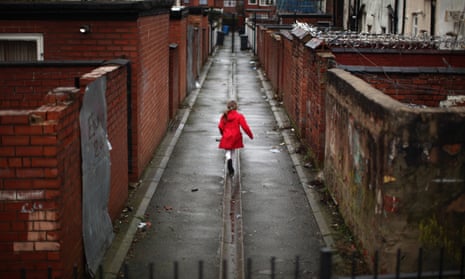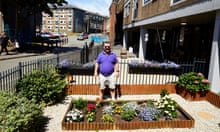The study by the Institute for Fiscal Studies predicting a sharp rise in child poverty will provoke the usual, commendable, shrieks of indignation. When news that more children than ever before are soon to be confined to economic deprivation, it’s sure to inspire a slew of robust dinner party debates.
The overriding emotion anyone should be feeling at news that in excess of a third of British children will soon be growing up in relative poverty is fear. The tidal wave of social problems racing towards all of us because of this unsustainable inequality has the potential to overwhelm society.
The cracks are already beginning to show. Take the various constitutional crises gripping Europe. Regardless of the political composition of the movement, the grievance that provokes is invariably the same: political and economic marginalisation underscored by the most galling wealth polarisation.
I’m one of those formerly “poor people” vomited up from the gaping class wound at the heart of British society to offer “shocking”, “inspiring” testimony about the adversity they have since transcended. You might find me recounting the day my drunk mum chased me with a knife or see me on television looking very bored as I explain, yet again, that I managed to avoid smoking crack because somebody knocked on the front door as the pipe was being passed to me.
I’m one of structural poverty’s most comforting cultural tropes: the survivor who lived to tell the tale.
It’s now commonplace to point out the correlation between poverty and nearly every other social problem you care to mention. Not just economic hardship, but poverty of the sort that fertilises cultures of abuse. This problem transcends left/right politics and will eventually overwhelm any society that refuses to deal with it.
When these problems flare up, they are rarely contained within a household or a community. Instead, they spill into our society and multiply, at a massive cost to us all. They spill into overcrowded casualty and high-dependency hospital wards. They spill into six-month waiting lists to access clinical psychologists and psychiatric counselling facilities. They spill into overrun social work departments and inundated supported accommodation projects barely keeping their heads above water. They spill into stressful housing offices, packed to capacity crisis centres and outmoded addictions services. And, for some, they spill into police stations, courts, children’s homes, secure units, young offender institutions and prisons.
Poverty is not only about a lack of employment or opportunity but about having no margin for error while living in constant stress and emotional unpredictability. For many children growing up in the chaos, deprivation leaves them emotionally disfigured and physiologically primed for chronic health problems.
What do you think is driving many of our current social problems where crime, violence, homelessness, addiction and the mental health epidemic are concerned? It all begins with a child living in social deprivation. And when it comes to the scourge of child neglect and abuse, poverty is the factory floor.
For now, the problems remain contained, confined only to the communities we call “deprived”, where the poor can be monitored, surveyed, policed and punished. But only for so long.
Action on poverty will require a far-reaching, long-term political consensus. It will require compromises and excruciating levels of humility from all of us, including the poor. This may require us to become willing to admit we may be wrong about some things and that there are no easy solutions or clear villains.
In other words, the situation can seem hopeless.
A great irony of British life is that lower-class people are often regarded, by their affluent superiors, as being a little coarse and unsophisticated, rough around the edges – when the true vulgarity on display is the apathy of many of those who regard themselves as educated and insightful; those who blindly believe, from the comfort of their economically gated communities, that this untenable status quo, built on sand, won’t soon collapse in on itself, as the coming wave of social dysfunction crashes aground and washes us all away.
Darren McGarvey’s Poverty Safari has just been published










